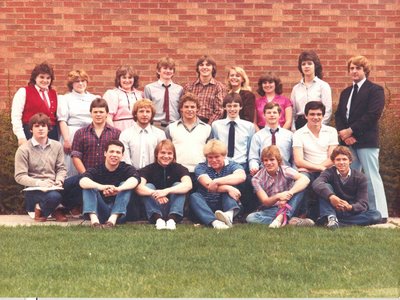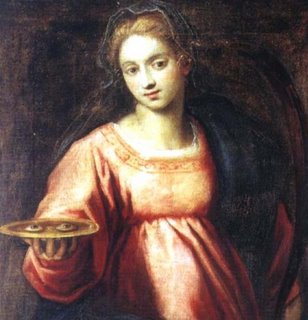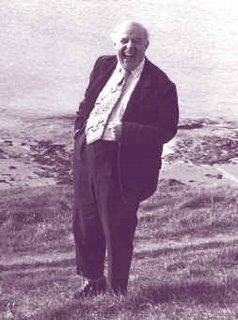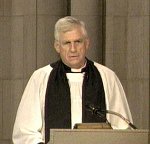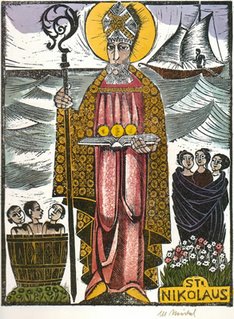Definition of Hajj:
Literally: Hajj means heading for an honorable person or place.
Legally: Hajj means worshipping Allah by performing the Hajj rituals, which are defined as specific acts performed at a specific time and place in a specific way.
There is agreement among Juristic schools over the Hajj definition.
Today marks Eid ul-Adha for Sunni Muslims around the world, and for all Muslims making the annual Hajj. On this day, the pilgrims, having spent the night in Muzdalifah, go back to Mina. As the first part of the stoning of the jamarat ritual, pilgrims throw seven pebbles at the large jamrah (wall) in Mina. This is symbolic of stoning the devil. After this, an animal is sacrificed. Then, those making the Hajj return to Mecca to complete their pilgrimmage with the farewell tawaf, which is also the first act of the Hajj. The tawaf consists of walking counter-clockwise around the Kaab'a seven times - three times at a hurried pace and then four times at a slower, more leisurely pace.

1. Performing Ihram from Miqat
2. Standing by `Arafah
3. Spending one night in Muzdalifah
4. Spending one night in Mina
5. Shaving the head or cutting hair short (shaving is recommended for men only)
6. Throwing pebbles
7. Farewell Circumambulation
There is agreement among Juristic Schools on the obligatory and necessary rituals of Hajj.
Supplication Said During Sa`i
"O Allah! O Controller of hearts, make my heart firm in Your faith. O Allah! I beseech You for what deserves Your Mercy, Your Forgiveness, and Safety from every sin. Grant me admission to Paradise and protection from the Hell Fire. O Allah! I beseech You for guidance, virtue, chastity, and self-sufficiency. O Allah! Help me to remember You, to offer thanks to You, and to worship You properly. O Allah! I seek from You all goodness, whether I comprehend it or not, and I seek from You admission to Paradise, and every deed or words that make this possible. I seek Your protection from entering the Hell Fire, and from every deed or words that make this possible."
Sa'i is the ritual act of walking seven times between the knolls of Safa and Marwah on the first day of the Hajj. This act retraces the footsteps of Hagar, wife of Prophet Abraham, during her desperate search for water for her infant son Ismail after they were left in the desert by Prophet Abrahim in response to a Divine vision. The hajji recites this prayer s/he walks.
It is important to remember that Arabic-speaking Christians call God Allah. They have done this since long before the advent of Islam. With that in mind, as Catholics, let us not lose sight of what our faith teaches. In numbers three and four of Nostra Aetate in which we state "The Church regards with esteem also the Moslems. They adore the one God, living and subsisting in Himself; merciful and all- powerful, the Creator of heaven and earth, who has spoken to men; they take pains to submit wholeheartedly to even His inscrutable decrees, just as Abraham, with whom the faith of Islam takes pleasure in linking itself, submitted to God. Though they do not acknowledge Jesus as God, they revere Him as a prophet. They also honor Mary, His virgin Mother; at times they even call on her with devotion. In addition, they await the day of judgment when God will render their deserts to all those who have been raised up from the dead. Finally, they value the moral life and worship God especially through prayer, almsgiving and fasting.
"Since in the course of centuries not a few quarrels and hostilities have arisen between Christians and Moslems, this sacred synod urges all to forget the past and to work sincerely for mutual understanding and to preserve as well as to promote together for the benefit of all mankind social justice and moral welfare, as well as peace and freedom.
"As the sacred synod searches into the mystery of the Church, it remembers the bond that spiritually ties the people of the New Covenant to Abraham's stock."
David Pinault, who is professor of Religion at Santa Clara University, in an article in America magazine about a year ago, briefly described an undergraduate course he taught on The Islamic Jesus. He began the course by focusing "on Koranic portraits of Jesus". By studying what the Qu'ran says about the Lord we "learn that Islamic scripture reveres Jesus, referring to him as the son of the Virgin Mary and as a prophet second in rank only to Muhammad". It is also important to keep in mind what Nostra Aetate emphasizes about Islam, which is that "Islam, as an Abrahamic tradition, honors a number of figures familiar to Jews and Christians from the Bible, including Noah, Moses and Solomon". It is in sura 19 of the Qu'ran that we read of Miriam, please go and read for yourself.
Given the grave ignorance, which leads to misunderstandings, that, in turn, lead to oversimplification and vilification of the other, it seems crucial as we enter a new year to think on these things in light of our own faith. This means knowing what the Church teaches regarding other faiths. One can do no better than beginning with Nostra Aetate, progressing to Huston Smith's The World's Religions: Our Great Wisdom Traditions, as a general survey, before reading the late Jesuit Fr. Jacques DuPuis' Christianity and the Religions: From Confrontation to Dialogue, a Catholic and catholic survey. Of course, again, I provide the link to Global Ethic Foundation, which is dedicated to making common cause among people of all faiths and making religion a source of understanding, compassion, and peaceful cooperation.











